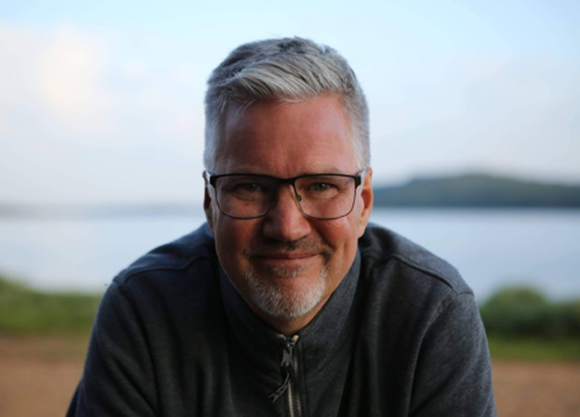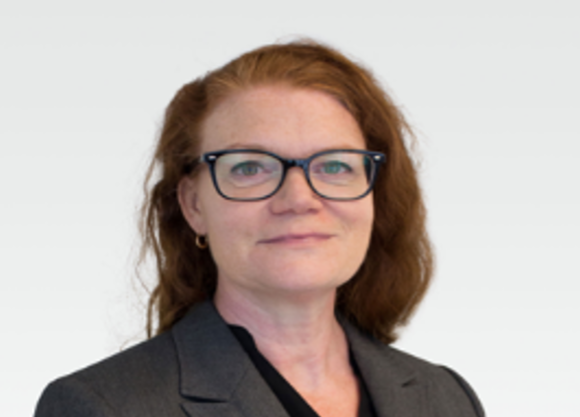Site blog

TAP-TS Faces: University College of Teacher Education Vienna
Welcome to yet another post of the "TAP-TS Faces" series! In this series of blog posts, we will be introducing you to the faces of TAP-TS, outlining their work with the project and their personal ambition related to the project. And in general, anything else that they're willing to share with us! For this post, we will be hearing from the team at University College of Teacher Education Vienna
What is your role in TAP-TS?
University College of Teacher Education Vienna (PH Vienna), Austria’s largest teacher training institution, offers a program of primary, secondary, vocational and special needs teacher education as well as CPD courses. PH Vienna researchers and educators contribute to TAP-TS with their expertise in the field of digital technology and sustainability, bringing experience from a number of ongoing projects at both national and international levels.
The PH Vienna team coordinates work on the development, validation, and publishing of seven sets of high-quality, open and flexible learning and teaching packages, incorporating innovative resources and pedagogical approaches. These packages aim to develop a European and international perspective towards learning in a digital world, sustainability, equity and inclusion.
What are you most passionate about when it comes to TAP-TS?
As a team – PH Vienna and TU Darmstadt, we are interested in exploring how the two areas of sustainability and digitality are related, and what connects the two discourses. More importantly for TAP-TS, our aim is to establish which pedagogical approaches could be used for school education, specifically at primary level, to introduce the two subjects and educate the younger generation about sustainable use of technology, increase awareness of the impact of technology on the environment and society, and engage them in small actions for a more sustainable future.
We hope to contribute to TAP-TS with our expertise in media literacy and sustainability in the digital age as well as with our experience developed in the award-winning project on the life cycle of a smartphone called "ÖHA! - Ecologically sustainable media use at school and beyond" (https://oeha.phwien.ac.at). In 2022, we launched a new learning space called DINA Lab, which stands for “DIgitalität und NAchhaltigkeit” (Digitality and Sustainability), where we develop and test teaching and learning materials, and provide pre-service and in-service teacher training in the areas of sustainability, digitalization and media studies.
At the TU Darmstadt, we are already implementing the experiences of TAP-TS in teaching in the BA and MA in Education and in the teacher training programme. We are also setting up a NADI-Lab based on the DINA Lab at the PH Vienna and integrating it into the existing ComputerStudienWerkstatt at the TU Darmstadt. We are already working with TAP-TS learning materials in numerous projects and workshops with student teachers and in-service teachers.
Where can people find you? (i.e social media)
The PHVienna team consists of five people. On our websites, you can find further information as well as emails of our team members: Elena Revyakina, Klaus Himpsl-Gutermann, Florian Danhel, Martin Sankofi and Petra Szucsich.
The TU Darmstadt team consists of three people: Nina Grünberger, Judith Hoehling and Gregor Eckert. You can find further information on projects and contact details for the team members on the websites.

TAP-TS Faces: Mats Westerberg
Welcome to the third post of the "TAP-TS Faces" series! In this series of blog posts, we will be introducing you to the faces of TAP-TS, outlining their work with the project and their personal ambition related to the project. And in general, anything else that they're willing to share with us! For this post, we will be hearing from Mats Westerberg from K & R Education.
A little about me
I have always had a strong interest in learning more about foreign cultures and travelled as backpacker extensively both in Europe and all over the world in my late teens and early twenties. I am an engineer by basic training and trained in social sciences as a researcher. I normally work as professor at the entrepreneurship and innovation subject at Luleå University of Technology, but I also work for KR Education in some projects - such as this - where I use my 30 + years of experience as educator and researcher to help TAP-TS become as successful as possible in the role as ongoing project evaluator.
My work
Formative assessment – providing feedback with the purpose to improve rather than to judge if something is good or bad – has always been at center when I teach. When I learnt about Carol Dweck’s Mindset Theory, it helped me realize that life-long learning is not just a catch phrase, but actually possible and desirable for all. If we focus on learning and development instead of just performing well, we can lead better lives and have less anxiety in our daily activities. Promoting this dynamic mindset is something I try to do every day both for myself and for those I work with. Becoming more sustainable is a lot about learning and development as the best measures for becoming more sustainable depend on context and situation. Even if we know a lot about the “big picture” of what we need to strive towards, situation and context will always play a role and therefore it is central to always allow for learning and development. I like the green competence framework as it highlights that sustainability is complex, but yet a set of competences that can be learnt if we decide to do so. As my main competence as educator and researcher is entrepreneurship, I can clearly see that being entrepreneurial is central for achieving sustainability goals, which also the green competence framework portrays.
K & R Education
Our mission is to strengthen the individual’s inner drive through education.
We help preschools, schools, and other organizations to develop through education activities and on-going evaluation activities. Our company was established 1990 and has since the start worked closely with practice to apply state-of-the-art educational methodologies and modern pedagogy. We are trained pedagogues, in-service teachers, teachers’ educators, and certified on-going evaluators with a broad competence. Together with our customers and partners, we customize efforts to attain measurable results and permanent sustainable long-term effects. We have our office in Malmo, but we work with customers and partners all over Sweden and Europe. We are passionate about bringing sustainability and sustainability competences to the forefront as an educational common thread all over Europe- in courses, among teachers, in classrooms. We are also passionate about the connection between Green Competences and Entrepreneurial Competences as it is though entrepreneurial actions sustainability is achieved in practice!

TAP-TS Faces: Marie Kniest
Welcome to the second post of the "TAP-TS Faces" series! In this series of blog posts, we will be introducing you to the faces of TAP-TS, outlining their work with the project and their personal ambition related to the project. And in general, anything else that they're willing to share with us! For this post, we will be hearing from Marie Kniest from K & R Education.
A little about me
I have worked with people throughout my entire life, starting in emergency care, and then shifting my focus to the education sector. I have worked at all levels of the Swedish education system, from preschool to university, serving as a teacher, process leader, development leader, and assistant principal. I have a degree in Social Science, Educational Science, and Entrepreneurship. I am particularly interested in the holistic approach to how everything is interconnected—competencies, learning, language, interculturality, etc. In TAP-TS, I am one of the evaluators, with a focus on formative assessment.
My work
My everyday work revolves around mindset, entrepreneurial learning, and pedagogical organizational development. I am passionate about helping others succeed, both kids, youngsters and adults, through lifelong learning linked to the entrepreneurial mindset. I focus on development and learning instead of what is "right" and what is "wrong." With an entrepreneurial approach, our focus is on the positive and what works, ultimately making learning more sustainable. In this work, entrepreneurial skills and sustainability competencies in Green Comp complement each other, very well. In our assignments, we are often inside organizations, schools, preschools, for an extended period, 2-3 years, sometimes longer, as process development takes time and must be given time, especially for sustainable organizational development.
K & R Education
Our mission is to strengthen the individual’s inner drive through education.
We help preschools, schools, and other organizations to develop through education activities and on-going evaluation activities. Our company was established 1990 and has since the start worked closely with practice to apply state-of-the-art educational methodologies and modern pedagogy. We are trained pedagogues, in-service teachers, teachers’ educators, and certified on-going evaluators with a broad competence. Together with our customers and partners, we customize efforts to attain measurable results and permanent sustainable long-term effects. We have our office in Malmo, but we work with customers and partners all over Sweden and Europe. We are passionate about bringing sustainability and sustainability competences to the forefront as an educational common thread all over Europe- in courses, among teachers, in classrooms. We are also passionate about the connection between Green Competences and Entrepreneurial Competences as it is though entrepreneurial actions sustainability is achieved in practice!

TAP-TS Faces: Rachel Bowden
Welcome to the first post of the "TAP-TS Faces" series! In this series of blog posts, we will be introducing you to the faces of TAP-TS, outlining their work with the project and their personal ambition related to the project. And in general, anything else that they're willing to share with us! We're kicking off with Rachel, our project coordinator.
A little about me
I have worked as an international development volunteer in Nicaragua, and as an English teacher, teacher trainer and education project manager and researcher in Malaysia, Sri Lanka, Bhutan, Nepal, India, Bangladesh and Rwanda. I have degrees in English, Education for Sustainability and applied linguistics. I am particularly interested in the intersection between decoloniality, multilingual education and sustainability. I am the project coordinator for TAP-TS – or as Mats said, “the spider in the web”!
My work
I am passionate about working towards high quality education and lifelong learning for all, in line with Sustainable Development Goal 4. I am particularly concerned with educational inequities within and between countries. I find sustainability education endlessly fascinating. For me, it involves understanding current crises – social, economic, and environmental – and how these are connected and their historical roots. It is also about exploring future alternatives and valuing different perspectives and practices. I love the fact that every ‘subject’ at school has important perspectives to contribute. So, of course, do people outside of schools: families, local communities, businesses. Given that un-sustainability has been caused by people with the most power in society today, there is a strong reason to learn from people who have been marginalised. Sustainability can be the frame, the reason, and the challenge to bring different people and perspectives together and forge new understandings and practices”.
